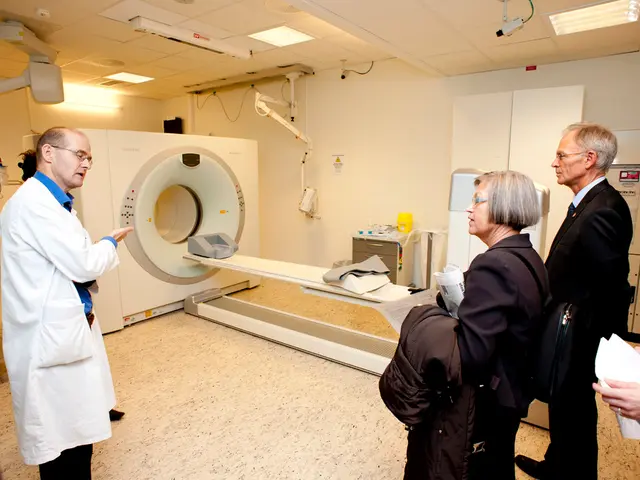Citizens Influence France's Aid-in-Dying Discussion Through 184 Perspectives
In November 2022, retired economist Marc-Olivier Strauss-Kahn found himself embarking on an unexpected journey when he received a call inviting him to participate in France's citizens' convention on end-of-life care. The initiative was President Emmanuel Macron's attempt to foster a national dialogue regarding assisted dying.
Under the current 2016 law, deep and continuous sedation is permitted for terminally ill patients, while assisted suicide and euthanasia remain illegal. The convention's mission was to examine whether the current approach adequately addresses various end-of-life situations or if changes are required.
As Strauss-Kahn delved into the topic, he observed that the question of death concerns everyone, and he was intrigued by the convention's novel format aspiring to unite diverse individuals who had never met or engage in discussions.
The four-month process consisted of 27 days of deliberation across nine weekends, supplemented by online chats and virtual meetings. Participants, who hailed from various age groups, regions, and educational backgrounds, shared a common intention--to contribute to the conversation.
One of the participants was 35-year-old Soline Castel, who operates a day center for people with mental disabilities in rural Sarthe. Castel approached the issue with a more opposition-leaning viewpoint due to her family background. Nevertheless, she remained undecided and open-minded about the topic.
Over the course of four months, participants attended 60 hearings with healthcare professionals, philosophers, lawyers, and religious figures, gaining insights from terminally ill patients and palliative care workers. Their positions on assisted dying ultimately crystallized, with Strauss-Kahn becoming more supportive of the practice while Castel became firmly opposed to it.
Strauss-Kahn's conviction was bolstered by recognizing the numerous obstacles that must be overcome, such as limited availability of medicine, knowledge, and information, as well as inadequate training for healthcare professionals.
The convention's final recommendations included expanding palliative care and allowing adults with incurable illnesses to take lethal medication under specific conditions, with those physically unable to self-administer being permitted medical assistance by a doctor or nurse. Strict criteria established by the French model of assisted dying would apply.
While a minority of participants opposed any form of assisted dying, their perspectives were given equal consideration, contrasting debates in parliament. The convention's recommendations have already had an impact, influencing policies and serving as a reference point for politicians and the media.
In light of the convention, both Strauss-Kahn and Castel founded "The 184" group, which continues to promote deliberative democracy and enhanced end-of-life care. Despite their contrasting views on assisted dying, they collaborate to ensure the convention's work remains relevant in the national discourse.
The participants in the convention demonstrated that deliberative democracy can manage divisive matters with precision and respect, serving as an example of political compromise being possible in France, where it is often rare.
- Emmanuel Macron, the president of France, initiated the citizens' convention on end-of-life care in November 2022, aiming to instigate a national dialogue about assisted dying.
- Participants in the convention, including retired economist Marc-Olivier Strauss-Kahn and 35-year-old Soline Castel, who runs a day center for people with mental disabilities, shared a common goal—to engage in discussions about end-of-life situations.
- During the four-month process, the convention explored various aspects of health-and-wellness, including medical-conditions, science, and the role of healthcare professionals, in relation to end-of-life care.
- While Strauss-Kahn became more supportive of assisted dying due to the insights gained from healthcare professionals, Castel maintained a firmly opposing viewpoint.
- Social media and entertainment platforms have been abuzz with discussions about the convention's recommendations, which include expanding palliative care and allowing adults with incurable illnesses to use lethal medication under specific conditions.
- Politics and general news have been heavily influenced by the recommendations of the citizens' convention, showcasing the potential of deliberative democracy in fostering a productive dialogue about controversial issues in France.








